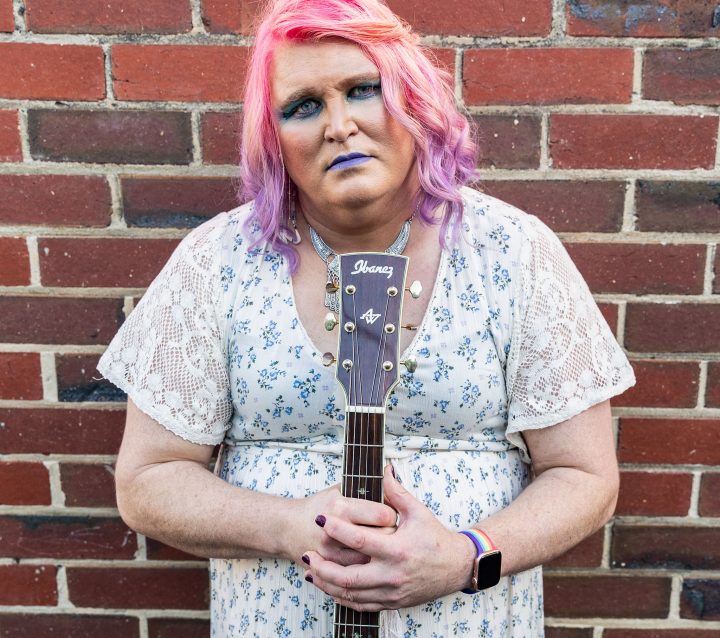CONTENT WARNING: This interview contains topics that can be confronting. Sometimes words can cause sadness or distress, or trigger traumatic memories for people, particularly survivors of past abuse, violence or childhood trauma. If you need to talk to someone, support is available through redress support services. Further details at the end of this article.
Please tell us your story! How did you get to where you are today?
In a life of 51 years, there are a lot of signposts along the journey, but a few of these are significant. I’ve always known there was something a bit weird about me. If you have no role models, no internet, no trusted people in your life; how do you even know what questions to ask? I grew up in a household, in which I experienced child abuse from a grandparent and I grew up in a moderately religious environment until I turned 9 or 10. Our family became heavily involved in what I felt later was a form of cult-like christianity. Like a good child, I involved myself trumpeting the virtues of these Christian beliefs, all while I secretly suspected it was really all oppressive and damaging. I was also given the label of being a gifted child, whom was also struggling while experiencing undiagnosed ADHD; as well a being an autistic human.
Only as I got older, I started to understand more about coercive control. So much of the Christian practice I was involved in, did not align with critical thinking and so it was passively discouraged. I remember some fairly extreme practices being forced upon me by well meaning parents and church leaders that I come to understand was abusive behaviour.
It took me until the age of 44 to have the courage to start saying no to the beliefs and values around me; to start healing. Music has been a significant part of this experience, but not in the way many would assume. I have had to extract myself from thinking of music as a professional pursuit, which plays into the gifted child label and claim it as part of my personal therapy; a voice for communication. A conduit of sorts for thoughts and feelings about my sensory experience of life.
How long have you been making music for?
I am proudly 51 years old and I don’t think there was a specific time when I decided that I was making music. I think music has been a response to my lived sensorium from the day I was born. Whether that is listening to the sounds of a river or the pounding of the surf on the black beach pebbled near my home; sound has been an ever present connection to the world around me. I think this is why I find much meaning the production process of music-making, as I do in the writing or performing of songs. It also probably explains why I find genre so difficult. It’s all song and experience to communicate my sensory intersection with life. The style is secondary and it all needs a large sonic colour palette to draw from.
Please tell us about Wild At Heart and the work you do there.
While I am not involved as much in Wild At Heart currently, I have been recently running some songwriting workshops that focus on melody writing. I love melodies and it’s wonderful to share some of my approaches to creating meaningful and singable ones. I am very proud of the work I do as a producer and mentor, facilitating a number of artists with disability to record and release their important music to the public. I still occasionally perform and run workshops at Wild At Heart events to be part of this wonderful community and remain connected to the talented artists that supported by that organisation.
“You can really sidestep all this industry if you want. There are awesome people, passionate small studios, fans who want meaningful music and you can really do it without the large old machine. It gets back to being about community.”
What does your day-to-day entail?
These kind of questions are challenging for an autistic brain as you just want to write a laundry list of your day to day activities, which is incredibly boring. However, I think it’s a great opportunity to understand a little of how I need to look after myself, so I can continue pursuing my goals and have a meaningful life.
My morning routine is super important, making sure I do the basics. Medication, breakfast, brushing teeth etc. All that stuff people do on autopilot, I need prompts for these activities. This can be a list I refer to, a calendar reminder, or a quick call from a support person. Being a single parent consumes a large part of my daily life.
There is an enormous amount of chatter that invades my brain and the medication is incredibly important to help channel that noise into productive activity, but it is only a part of the solution. Having the necessary supports of people that I can hire through my NDIS plan and the daily self care activities I engage in are the foundation for being able to do everything else.
I try and work on music daily. Whether that is writing, recording, listening or working on the more functional parts of getting the music out to the public. I would say that a least half of the time is devoted to the unsexy parts, the spreadsheets, the promotion and networking. I have to make my art a priority but, often there are medical, parenting and life activities that crowd.
Do you feel that higher education is a necessary step to enter the music industry?
Having engaged in higher education, I am a bit on the fence about this one. I think it really comes down to you as an individual and the role you wish to have. The music industry has changed so much and it is more than ever a commodity marketplace. If you choose to participate, learning the processes, policies, procedures go to improving the accessibility and safety for everyone; higher education does deliver improved outcomes.
However, as a creative person, I think there is much more non-creative activity expected of you and I do think that there is too much emphasis on systemising the creativity to fit it into a business model. This elevates people that are good at business rather than people that are genuinely creative.
Have you had to overcome any challenges or adversity in your career, and if so, how did you approach them?
I have a strong image in my mind of a tiny young girl, sitting in front of a enormous stone, crawling with scorpions, covering a tiny glittering doorway that says: “Enter here and all your dreams will be fulfilled.”
I quote from a recent survey that Triple J did of Australian artists.
**”A whopping 83 percent of musicians who have earned money from their music over the past 12 months told us they work outside of the industry too, either with a job or a side hustle.” There is so little income that comes from music, especially if you are an original artist; the industry is very skewed toward youth and those that are willing to sacrifice wellbeing for the sake of career. Then to add on the top of having a disability it becomes a seemingly impossible dream, because I can’t work a job to fund my arts practice.
I think I have only managed to get this far because giving up would be the death of me. What sustains me is continually refocussing my efforts on doing what is important to me. Hiring good people, making friends and engaging community. Learning healthy boundaries and saying NO to activities that exploit me. Believing in those folks that find comfort in what I do and to just keep showing up for myself even when it hurts like fuck.
I have learnt that being smart, autistic and having ADHD can be equal parts strength and challenge. I do have an advantage that I can write, record and produce everything myself, to a very high standard without anyone else, but I am also learning wisdom. Just because I can do it, doesn’t mean I should do it and the skills I do have are not all I need to be successful.
However! I have learnt to stop believing the folks that tell me the “right way to do it.” If I was going to give any advice it would be, to objectively learn how to know yourself and if that takes therapy, do it! Know your strengths, know your weaknesses, work on your strengths and be wise in being vulnerable with your weakness.
“I would tell her that she will survive. I would tell her that there’s such a thing as being transgender and this is a valid expression of our humanity. I would tell her that I got her and that she can be pretty as she wants to be.”
Who are your role models in the industry be they international or locally-based?
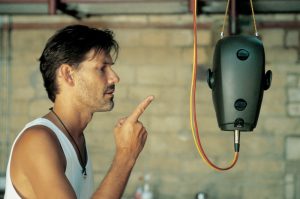
Incredible mix engineer/sound designer. Has been responsible for some of my favourite albums of all time. I learnt so much from just listening to his work.
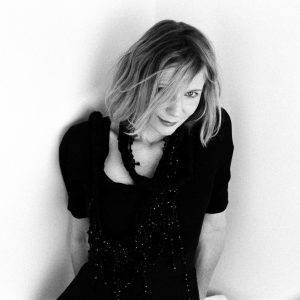
Extraordinary songwriter and artist. I have followed her from the early days of being reluctant Christian recording artist through the breakup of relationships, the songs always brim with intelligent fire. Her songs are my benchmark.
Rosalind Cox: Rosalind is not famous, but is probably the person that has had the single biggest impact on my life. She was the encouragement behind getting me out from behind the piano and singing at the age of 19.
Who are your top 3 artists or producers to watch?
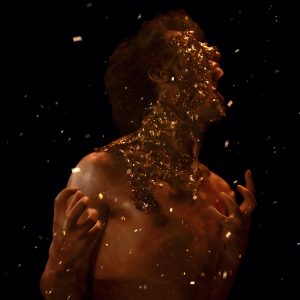
Such a dynamic performer, incredibly political, charismatic and unreservedly queer AF. Great songwriting, production and completely eye popping videos. I have to make a mention of Alexis Benedict, who performs as the artist Benedict and the head of Tomboi Records for helping nurture Lion and hustle him to the world. Check out the songs “Not Your Fetish,” and “Attention,” for an in your face experience.
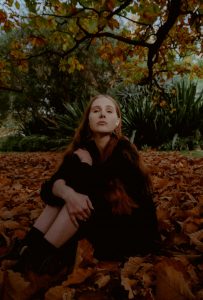
First of all, a humble yet beautiful songwriter. She holds the stage with a restrained grace and is slowly carving out a career. I think she is someone who could be heading alongside Sarah Blasko or Clare Bowdich and icons of Australian music. Check out the songs, “Edithvale, Getaway and At Least.”
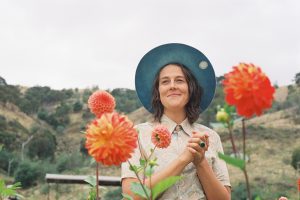
What do I say about Kerryn, but the words of “sheer determination,” are never from my mind. I inspire to be as publicly present and productive. Powerfully subversive country songs and a complexly adorable person with a unique voice. Check out “St Kilda Pier, Mamma and Until You.”
What is the proudest moment in your career so far?
I left this question until last to answer, because I struggled so hard to remember events. I have had so many highlights such as performing on the X Factor stage and being a showcasing artist at BigSound last year. However, I think my proudest career moment is when I shared my song Lullaby of Home with my trans and gender diverse choir, KeyChange. I heard everyone singing the chorus back to me and everyone had tears in their eyes. I could see that they all had deeply understood a piece of pain that I had carried and that they connected with the song. There is no greater moment.
What is your greatest lesson or piece of advice you’ve received?
I think the most sage piece of advice that I ever had was from my psychologist. I remember him saying, “You have to find a way to detach your need for validation from your creativity and your source of income.” This was the start of making music that was about my own expression, the personal journey rather from the dual needs of worthiness and the need to make an income.
Who has been your greatest champion in your career, who has helped you along the way?
This is going to sound really self important, but really that person has been me, and probably in a way that most wouldn’t suspect.
There have been many folks along the way that have noticed and enjoyed my creativity, but I have always appeared so self sufficient that many people would scratch their heads and ask, “why is this person not successful?” I can write, arrange, perform, mix, master, create art, hustle, etc to a high standard and mostly I have been met with disbelief in the industry, until folk actually_hear_what I do, it’s not typical, it’s unusual and honestly a fucking pain to have all this garish “talent,” in one body. I mostly hate it and I wish I could have been normal, I think I would have gotten much further in life. This isn’t to say I know everything or are even the best at all these things. Could someone else improve what I do? Of course they could! I was looking for help for years. Looking for band members, looking for career support, anything.
Folks immediately made the leap to, “WOW, this person is super-capable,” all the while I found myself struggling under capacity constraints of being a smart autistic person with ADHD, being a carer, a single parent, a transgender human. I remember hearing Alan Turing’s story and just nodding my head with sympathy.
This is not other people fault, I understand now that so much of this need to do everything is a trauma response, the need to control, the need to be valid and the need to be safe,
There really have been many folks that have tried to help, but really not know how. I the last few years, as I started to acknowledge my disability, people such as Phil Heuzenroeder from Wild @ Heart Community Arts and Dina Bassile from Tibi Agency, the creator of Groove Tunes have seen and heard my needs and are supporting me to make a difference. These are my heroes.
There are many individuals that have given me a push in the right direction, relationships that have helped me believe in myself and I thank them all. I really want to be able to pass that on.
“You have to find a way to detach your need for validation from your creativity and your source of income.” This was the start of making music that was about my own expression, the personal journey rather from the dual needs of worthiness and the need to make an income.
What do you think is the biggest threat to artists or the industry and what would you do to change it?
I think the biggest threat to artists in the music industry is the music industry itself. I think that people like Daniel Ek for Spotify honestly think of themselves as a saviour of the industry, that without them Pirate Bay, Napster and other filing sharing platforms were decimating the music business and they weren’t wrong. However, what has happened is they have found a way to prop up the existing model, driving the costs down, driving down the returns to artists and banking on distributing music for free, or for a low subscription cost that really has played into the devaluation of music by the public. It’s got to be faster, cheaper, easier, more palatable, easier to consume. This drive has always been present, but it has been amplified by the application of technological progress, the old power centres are sustained and they still stay being the narrow gateway for public access. The good thing is that is these gateways are easily accessible if you can learn how to leverage the system.
I am not someone who thinks that the old way was better, I actually think the opposite is true. Technology always marches on to create a different experience for users and it really is cheaper, faster, easier to create and release quality music than it ever was. What I am concerned about is that when the artistry suffers as a result of the massive power imbalance of the industry, that wants us to pump out the pulp of “content,” without consideration of craft.
There are huge numbers of highly skilled, professional folks that are left behind, because it is no longer profitable for them to stay and their lives have been supported by this machine. You can’t take a few years to make a meaningful album and make a living from it. It is just not sustainable anymore in the current model and so much of the public actually couldn’t care. As an artist there is a choice before you, you can make amazing music and you can take your time, but it can no longer be the old industry that controls it.
You can really sidestep all this industry if you want. There are awesome people, passionate small studios, fans who want meaningful music and you can really do it without the large old machine. It gets back to being about community.
What would you tell your younger self if you can tell her anything?
I would tell her that she will survive. I would tell her that there’s such a thing as being transgender and this is a valid expression of our humanity. I would tell her that I got her and that she can be pretty as she wants to be.
Do you have any activities that you do for self-care that are non-negotiable?
I need to spend time with the important people in my life, whether that be a girlfriend, my child, friends and myself. I need time on my own and I try and book time away at least a few times a year. I like to book a massage or a trip to the hot springs, maybe visit the beach or the mountains. However, I don’t have much in the way of money being on a carers pension. I have to find ways of doing free stuff.
How firm are you with boundaries between work/life balance and how do you try to enforce them?
LOL. I find that I struggle with this, even understanding where work ends and life begins. Life informs being a writer, the work is how you express your creativity. When your “job,” is also being a single parent, you just don’t get a “personal,” life, I have to make sure I am doing things that are deliberate self-care to maintain myself.
Any tips for a quick ‘pick me up’ if you’re having a bad day?
I think just stopping to breathe and ground myself in what is happening in the present moment. So much of the chaos is what is happening in my head. That and making myself a great soy latte.
What is your go-to Karaoke song?
My karaoke song of the moment is Electric Blue by Icehouse. Ira Davies is such an inspiration.
CONTENT WARNING: This interview contains topics that can be confronting. Sometimes words can cause sadness or distress, or trigger traumatic memories for people, particularly survivors of past abuse, violence or childhood trauma. If you need to talk to someone, support is available through redress support services. The following services are available 24 hours a day.
Beyondblue: 1300 224 636
1800RESPECT: 1800 737 732
Lifeline: 13 11 14
Suicide Call Back Service: 1300 659 467
